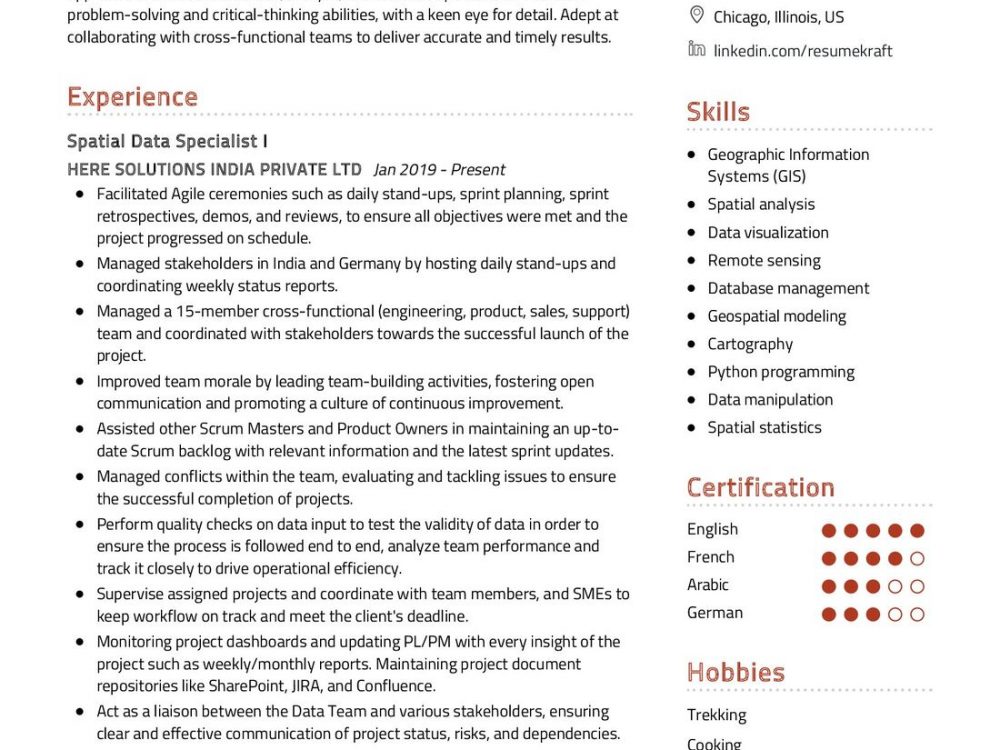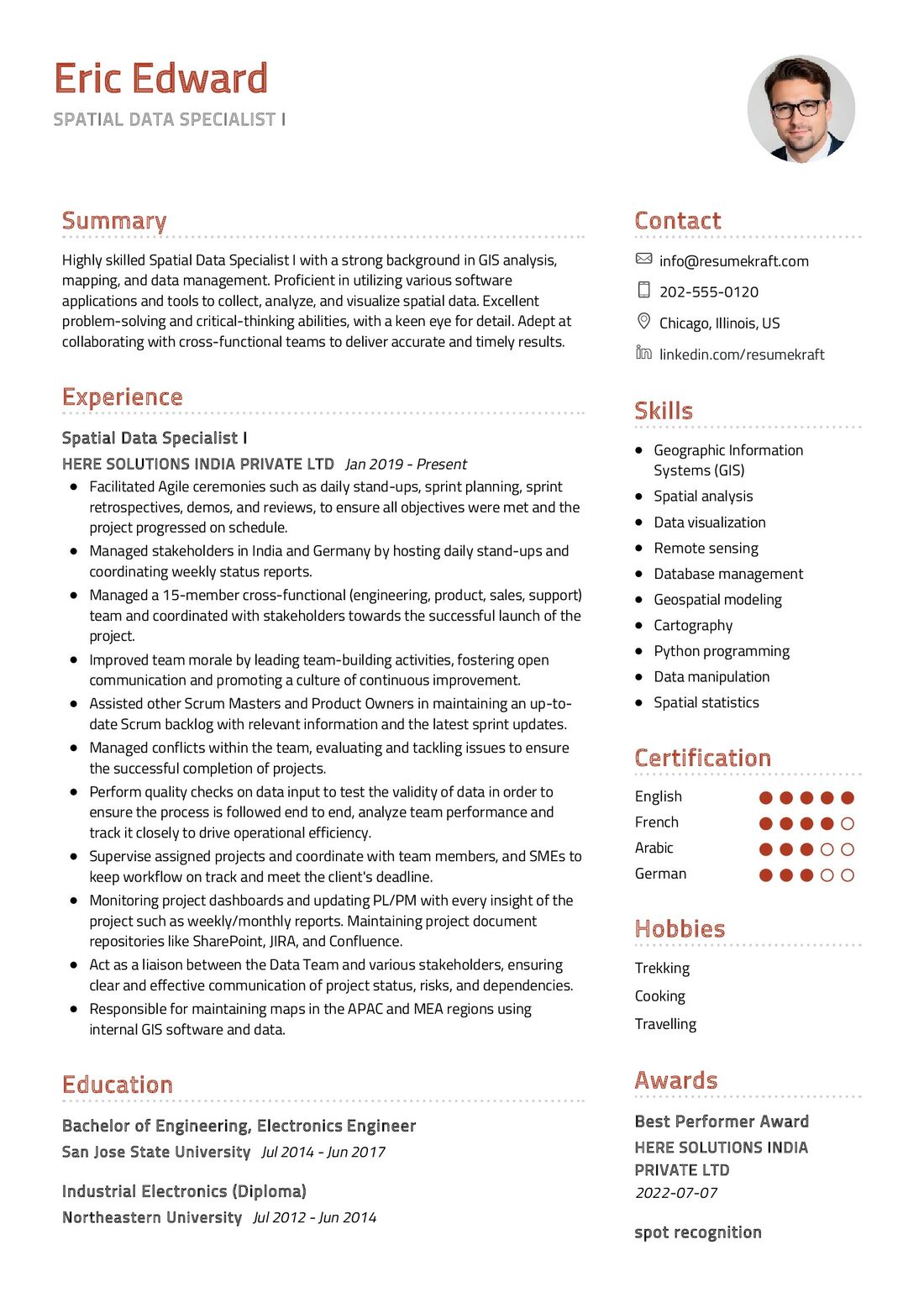Exploring the Role of a Spatial Data Specialist
In the ever-evolving landscape of data management, the position of a Spatial Data Specialist has become increasingly crucial. This role blends technical expertise with a keen understanding of spatial analysis, playing a pivotal role in harnessing the power of location-based information. Let’s delve into the multifaceted responsibilities and requirements that define the role of a Spatial Data Specialist.
What Does a Spatial Data Specialist Do?
A Spatial Data Specialist is tasked with managing, analyzing, and interpreting spatial data to support decision-making processes within an organization. This role requires a deep understanding of Geographic Information System (GIS) technologies and the ability to translate complex spatial data into actionable insights. Let’s explore the key aspects of a Spatial Data Specialist’s responsibilities:
- GIS Data Management: Overseeing the collection, organization, and maintenance of spatial data, ensuring data integrity and accessibility.
- Spatial Analysis: Utilizing GIS tools to analyze geographic data, identify patterns, and extract meaningful information for strategic decision-making.
- Mapping and Visualization: Creating maps and visual representations of spatial data to communicate findings and insights effectively.
- Collaboration: Working closely with cross-functional teams to integrate spatial data into various projects and initiatives.
- Quality Assurance: Ensuring the accuracy and reliability of spatial data through regular quality checks and validation processes.
- Problem Solving: Addressing spatial data-related challenges and proposing innovative solutions to optimize processes.
Key Requirements for a Spatial Data Specialist
Embarking on a career as a Spatial Data Specialist requires a combination of education, technical skills, and a passion for leveraging spatial data for informed decision-making. Here are the key requirements to excel in this role:
- A Bachelor’s or Master’s degree in Geography, Geoinformatics, or a related field, demonstrating a strong foundation in spatial analysis.
- Proficiency in GIS software such as ArcGIS, QGIS, or other industry-standard tools.
- Experience in spatial database management and data modeling.
- Strong analytical and problem-solving skills, with the ability to derive insights from complex spatial datasets.
- Excellent communication skills to effectively convey spatial information to non-technical stakeholders.
- Attention to detail and a meticulous approach to data quality and accuracy.
Obtaining additional certifications in GIS technologies can enhance your profile and set you apart in the competitive job market.
Responsibilities of a Spatial Data Specialist
The role of a Spatial Data Specialist encompasses a range of responsibilities, each contributing to the effective utilization of spatial data in decision-making processes. Let’s explore these key responsibilities in detail:
- Geospatial Database Management: Designing and maintaining geospatial databases to ensure efficient storage and retrieval of spatial data.
- Customizing GIS Applications: Tailoring GIS applications to meet specific project requirements and enhance functionality.
- Remote Sensing: Utilizing remote sensing technologies to collect and interpret spatial data from satellite imagery or aerial surveys.
- Environmental Analysis: Applying spatial analysis techniques to assess environmental impact and support sustainable decision-making.
- Urban Planning Support: Assisting in urban planning processes by providing spatial insights for infrastructure development and land use planning.
- Training and Knowledge Sharing: Conducting training sessions for colleagues and stakeholders to promote understanding and utilization of spatial data.
Each responsibility adds a layer to the multifaceted role of a Spatial Data Specialist, requiring a diverse skill set and a proactive approach to problem-solving.
Spatial Data Specialist Resume Writing Tips
Crafting a resume that effectively showcases your skills and experience as a Spatial Data Specialist is essential for standing out in the job market. Here are some tips to create a compelling resume:
- Highlight GIS Projects: Showcase specific GIS projects you have worked on, detailing your role, contributions, and the impact on decision-making.
- Quantify Achievements: Use metrics to quantify the impact of your spatial analysis, such as efficiency improvements, cost savings, or enhanced decision accuracy.
- Emphasize Collaboration: Highlight instances where you collaborated with cross-functional teams to integrate spatial data into broader organizational initiatives.
- Include Relevant Skills: List technical skills related to GIS software, spatial analysis, and database management to demonstrate your proficiency.
- Customize for Each Application: Tailor your resume for each job application, emphasizing the skills and experiences most relevant to the specific role.
Your resume is your professional narrative, and by following these tips, you can effectively communicate your expertise as a Spatial Data Specialist.
Spatial Data Specialist Resume Summary Examples
Your resume summary serves as the introduction to your professional story. Craft a powerful summary that encapsulates your skills and experiences. Here are some examples to inspire you:
- “Dedicated Spatial Data Specialist with a Master’s in Geoinformatics and a proven track record in leveraging GIS for impactful environmental analysis and urban planning support.”
- “Experienced GIS Professional specializing in spatial database management and remote sensing, contributing to data-driven decision-making in diverse projects.”
- “Detail-oriented Spatial Data Specialist with a passion for translating complex spatial data into actionable insights, driving efficiency and informed decision-making.”
Your resume summary is your opportunity to make a strong first impression, so make it count!
Create a Strong Experience Section for Your Spatial Data Specialist Resume
Your experience section is the core of your resume, where you detail your professional journey and the impact you’ve had in previous roles. Here are some examples to guide you:
- “Led the implementation of a geospatial database, resulting in a 30% improvement in data retrieval efficiency for spatial analysis projects.”
- “Applied remote sensing techniques to assess environmental changes, providing critical insights for sustainable land use planning.”
- “Collaborated with urban planning teams to integrate spatial data into infrastructure development projects, optimizing resource allocation.”
Each experience listed should highlight your contributions and the value you brought to the organization.
Education Section for Your Spatial Data Specialist Resume
Your educational background is a key component of your resume, demonstrating your foundational knowledge in spatial data analysis. Here’s how you can present your education:
- Master of Science in Geoinformatics, XYZ University, a comprehensive program focusing on advanced spatial data analysis techniques, 2018.
- Bachelor of Arts in Geography, ABC University, providing a solid foundation in geographic principles and spatial data fundamentals, 2015.
- GIS Professional Certification, demonstrating ongoing commitment to staying current with industry standards and advancements, 2019.
Highlighting your education showcases your academic achievements and sets the stage for your expertise as a Spatial Data Specialist.
Skills Essential for a Spatial Data Specialist Resume
Your skill set is a toolbox equipped with the abilities that make you an effective Spatial Data Specialist. Let’s categorize these skills into soft skills and hard skills:
Soft Skills:
- Attention to Detail: A meticulous approach to ensuring accuracy and reliability in spatial data.
- Communication: Effectively conveying complex spatial information to both technical and non-technical stakeholders.
- Problem-Solving: Navigating challenges and finding innovative solutions in spatial analysis projects.
- Collaboration: Working seamlessly with cross-functional teams to integrate spatial data into broader initiatives.
- Adaptability: Flexibility to adapt to changing project requirements and technological advancements.
Hard Skills:
- GIS Software Proficiency: Mastery of GIS tools such as ArcGIS, QGIS, or other industry-standard applications.
- Spatial Database Management: Designing and maintaining geospatial databases for efficient data storage and retrieval.
- Remote Sensing: Utilizing remote sensing technologies to collect and interpret spatial data from various sources.
- Environmental Analysis: Applying spatial analysis techniques to assess environmental impact and support sustainable decision-making.
- Mapping and Visualization: Creating visually compelling maps and representations of spatial data.
Each skill in your toolbox contributes to your effectiveness as a Spatial Data Specialist, showcasing your ability to navigate the complexities of spatial analysis.
Common Mistakes to Avoid When Writing a Spatial Data Specialist Resume
Avoiding common pitfalls in resume writing is crucial to creating a document that truly reflects your capabilities. Here are some mistakes to steer clear of:
- Generic Resumes: Avoid using a one-size-fits-all approach. Tailor your resume for each application to highlight the most relevant experiences and skills.
- Lack of Quantification: Don’t just list job duties. Quantify your achievements using metrics to demonstrate the impact of your work.
- Ignoring the Cover Letter: Don’t miss the opportunity to provide additional context and narrative in your cover letter. Use it to convey your passion for spatial data analysis.
- Overusing Technical Jargon: While technical proficiency is essential, ensure that your resume is accessible to a broader audience by avoiding excessive technical jargon.
- Skipping Proofreading: Failing to proofread your resume can leave a negative impression. Ensure that your document is error-free and presents a polished and professional image.
Avoiding these mistakes will contribute to creating a resume that effectively communicates your expertise as a Spatial Data Specialist.
Key Takeaways for Your Spatial Data Specialist Resume
As you craft your Spatial Data Specialist resume, keep these key takeaways in mind:
- Highlight Impactful Projects: Showcase specific projects where your spatial analysis skills made a significant impact.
- Quantify Achievements: Use metrics to quantify the results of your spatial analysis, providing concrete evidence of your contributions.
- Emphasize Collaboration: Highlight instances where you collaborated with diverse teams to integrate spatial data into broader organizational initiatives.
- Show Continuous Learning: Include any relevant certifications or training programs that demonstrate your commitment to staying current with industry advancements.
Remember, your resume is not just a document; it is a canvas where you paint your career story. Make it compelling, authentic, and tailored to showcase your strengths as a Spatial Data Specialist.
Finally, feel free to utilize resources like AI Resume Builder, Resume Design, Resume Samples, Resume Examples, Resume Skills, Resume Help, Resume Synonyms, and Job Responsibilities to create a standout application and prepare for the Spatial Data Specialist job interview.


